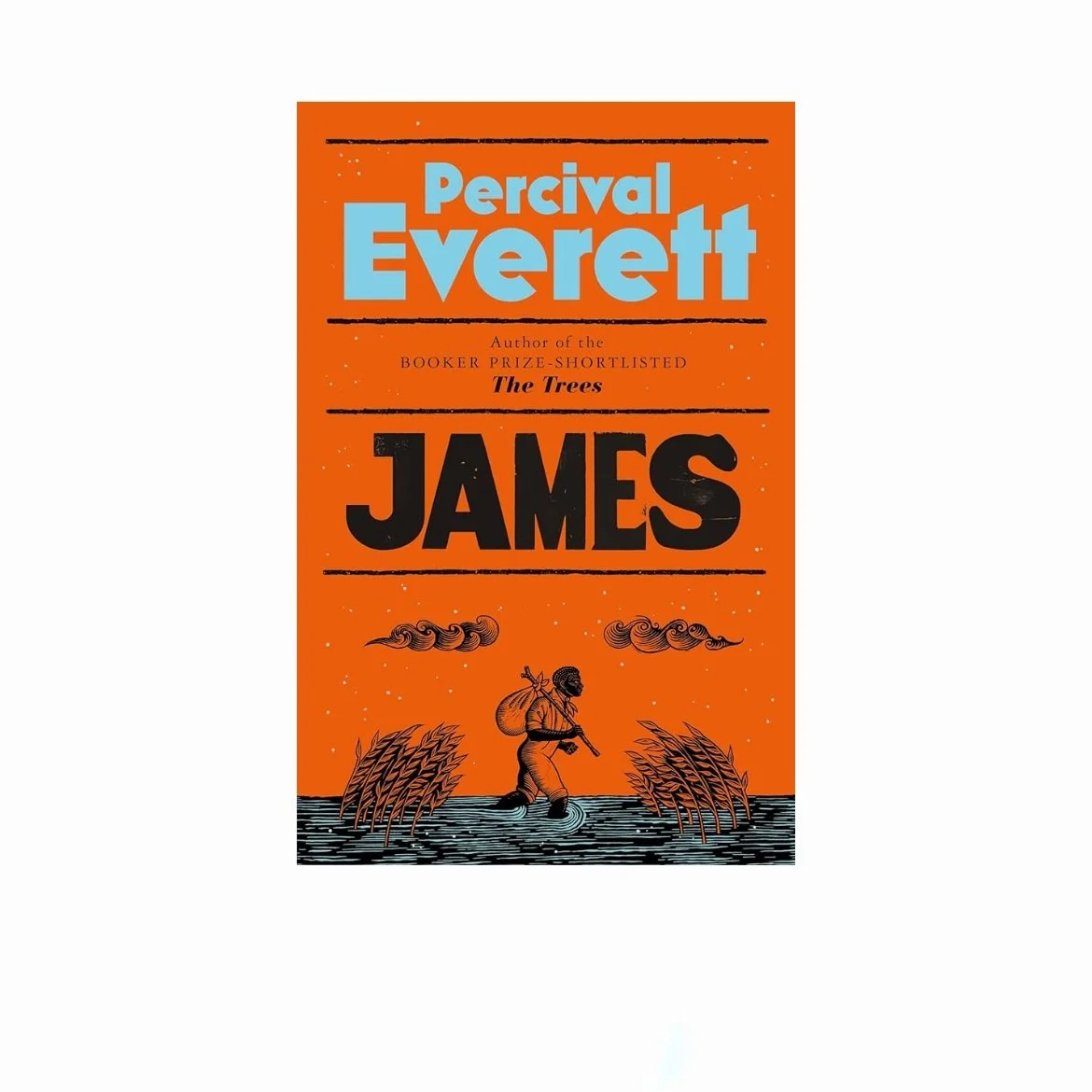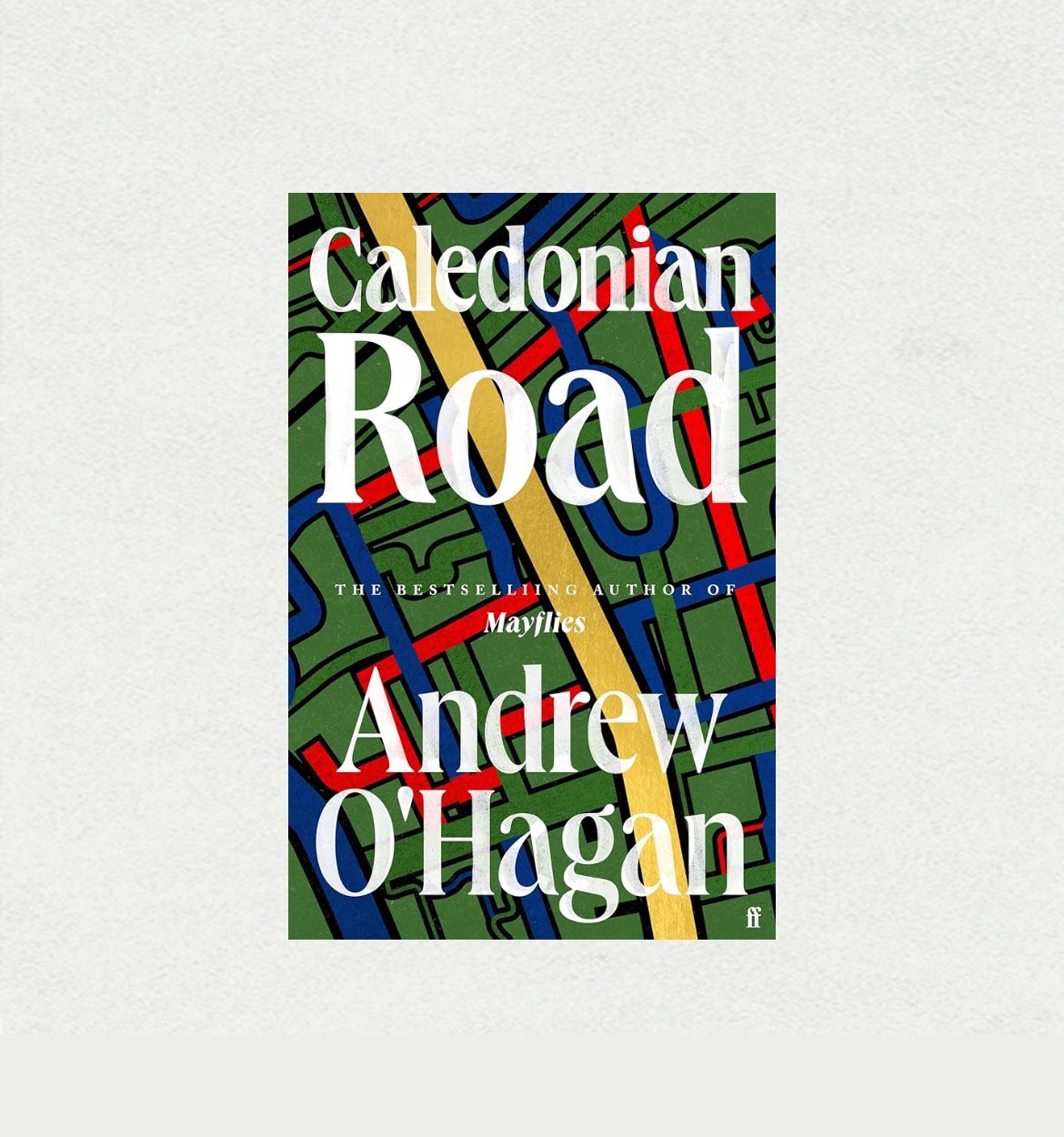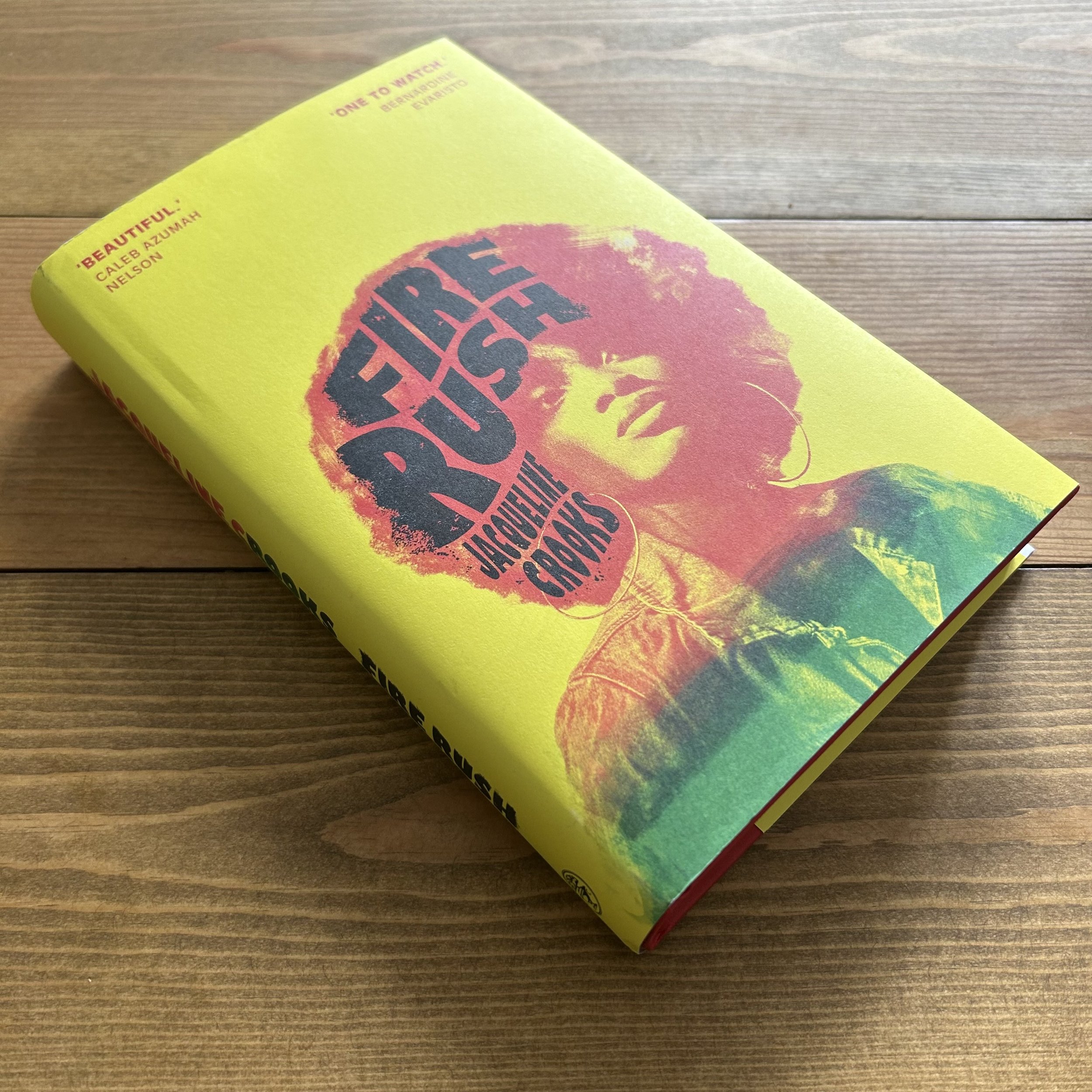
The Accidental Immigrants (2025)
The Accidental Immigrants is set on the Mediterranean island of St. Mira. It’s an independent country with historic ties to Greece but also a sizeable post-colonial British presence. In the wake of financial crises and an ineffective centrist government, it has also recently seen the rise of a nativist political party, the ‘Firsters’. When a bomb goes off at a British military base on the island just weeks before a general election, everything falls into place for a whitewash for the Firsters. Our focal points on the island are Tess, a translator with both St. Miran and British roots, and her partner Arlo, a Brit teaching the ‘Life in the UK’ course to St. Miran residents who want to emigrate to his home country. As the Firsters sweep to power, and immediately introduce new laws targeting foreigners on the island, Tess and Arlo find themselves strangers in the land they have made their home for years.
The Persians (2025)
The Persians focuses on the women from three generations of a wealthy and prestigious Iranian family, the Valiats, whose life paths bifurcated around the time of the Islamic Revolution. While sisters Shirin and Seema left (along with their brother, partners and Seema’s daughter Bita) for the USA, the family’s matriarch Elizabeth stayed behind in their homeland, as did - in more unusual circumstances - Shirin’s then six-year-old daughter Niaz.
Fundamentally (2025)
Fundamentally is the story of Nadia, an academic of Middle Eastern origin based in the UK, who has recently been poached from her cushy job in academia to go to Iraq to lead a UN taskforce focused on deradicalising women associated with ISIS. While her new role has some honourable intent behind it, she’s also escaping dissatisfaction with her life back home, where she has been disowned by her mother for straying too far from Islam and (in related news) dumped by her English girlfriend Rosy.
Good Girl (2025)
Good Girl centres on Nila, a 19-year-old student of Afghan refugees living in Berlin in what seems to be around the late 2000s/early 2010s. She has lost her mother and is keen to distance herself from her father, and throws herself into the Berlin clubbing scene, spending long nights and days partying, notably at ‘the Bunker’ (transparently Berghain) where she meets the much older American writer Marlowe, with whom she begins a tempestuous sort-of-relationship based around a mutual affection for art and the consumption of illicit substances.
The Ministry of Time (2024)
The Ministry of Time is a science fiction romance (with distinct thriller tropes on top of that), focusing on an unnamed civil servant working for the titular government agency in a near-future version of London. She is serving as a ‘bridge’ to one of an initial batch of time travellers, who have been ‘rescued’ from various significant points in history at the moment of their historical deaths. Her ‘expat’ (the name the government gives to the travelers, politically chosen in favour of ‘refugees’) is Graham Gore, a ship commander on board Sir John Franklin’s lost expedition to the Arctic in the 1840s.
The Book of Records (2025)
The Book of Records has as its central thread the story of Lina, a young girl who has been forced to emigrate from her homeland (seemingly part of China), and with her father has arrived at a mysterious enclave called 'the Sea', a shapeshifting and timeshifting fantasy of a refugee camp. In the process they have been separated from Lina's mother and brother, with their present whereabouts and status unknown. Among their minimal possessions are three volumes taken from The Great Voyagers encyclopedia series, which Lina obsessively reads and memorises.
Gliff (2024)
Gliff is set in a near-future dystopian version of what seems to be somewhere in England. In it we meet two children, the slightly older Briar/Brice/Bri and their younger sister Rose. Their mother has been taken away for dissent and we initially find them in the care of her boyfriend Leif. They come home to find their house with a red line painted around it, which they take as a cue to flee. When the same happens to their camper van, Leif takes the children to a 'safe house' and sets off alone to look for their mother. From there on in, Bri and Rose are left to fend for themselves.
Ripeness (2025)
Ripeness is told from the perspective of the 70-year-old Edith, brought up in England’s Midlands but here living a comfortable life in rural Ireland, somewhere around the present day. It consists of two strands: one focuses on her pleasant but mundane life in the here and now, her casual relationship (post-divorce) with Gunter, and her friendship with Maebh, who receives a message from a man in America claiming to be her half-brother. The second intertwining strand takes the form of a missive from Edith to her nephew, to be open upon her death, which describes the circumstances leading up to his birth in 1960s Italy to her young ballet-dancer sister Lydia. There are subtle plot details which slowly reveal themselves over the course of both parts of the narrative, which while not earth-shatteringly shocking are still integral to the reading experience, so I’ll keep my summary brief here.
Our Evenings (2024)
Oiur Evenings has a lot about it that will be familiar to Hollinghurst fans. Its protagonist, David Win, is a mixed-race child of a single parent, from the lower middle classes (his mother runs a small dressmaking business) in rural Southern England. He is a scholar at a prestigious fee-paying boys’ school, the recipient of an exhibition awarded by the arts benefactor Mark Harlow. The novel’s early chapters detail events during David’s time at that school, including a weekend at the Harlows’ country home, and an adventurous school ‘challenge’ in which he is paired with the Harlows’ son Giles (who we know from the book’s flash-forward introduction is to become a notorious right-wing politician and Brexit architect). David makes his way in life, developing an interest in acting and generally doing reasonably (if unspectacularly) well, all the while contending with his points of difference.
James (2024)
James is, in its simplest sense, a retelling of Mark Twain's classic The Adventures of Huckleberry Finn, from the perspective of the slave Jim. The original is loved and criticised (particularly around its complex handling of race relations) in equal parts, and Everett engages with it with a similar mix of obvious love for the source material and a clear sense of purpose in its interrogation of some of its more problematic aspects.
Caledonian Road (2024)
Caledonian Road is set largely on and around the titular thoroughfare, which heads northwards from near London’s King’s Cross station. Its action takes place in the very recent past, in a year’s period between early 2021 (and the ending of major Covid restrictions) and early 2022 (with Russian’s invasion of Ukraine on the imminent horizon). It’s introduced (at least in this pre-release version) by an extensive list of characters, setting the tone for the sprawling, somewhat Dickensian nature of the 600-ish pages to follow. At its undoubted centre, though, is the aging white liberal academic Campbell Flynn, clearly something of a proxy for the author. Having worked his way up in society from humble Glaswegian roots, through a combination of academic achievement and marriage into minor aristocracy, Campbell is a lecturer at UCL, a published art historian (most recently of an acclaimed life of Vermeer), sometime glossy magazine columnist and podcaster. Yet he senses shifting sands in society, and mostly the ones that uphold everything that he holds dears. Campbell, like the liberal intelligentsia he represents, is in crisis. And so, it seems, are his city and his country.
Fast By The Horns (2024)
Fast By The Horns is set in the Bristol neighbourhood of St. Pauls in 1980. It focuses on Jabari, the 14-year-old only son of the Rasafarian community leader Ras Levi. He exists in a clearly very close-knit community, but one that is constantly beaten down by corrupt policing and lack of council investment. Ras Levi and his fellow Rastafarians in the community, including of course Jabari, dream of repatriation to the Ethiopian motherland, though others in the community mock their ambitions and urge them to engage with the political realities of life in the UK. Amidst the violence and daily struggles with police brutality, Jabari's encounter with a young girl formerly from St. Pauls, who we find has been placed in the care of a white family in a neighbouring affluent area, provides a tender and emotional thread at the centre of the novel.
Study for Obedience (2023)
Study for Obedience is something of a difficult one to summarize. It’s a short book but in no senses a simple one. The unnamed female narrator arrives in an unnamed Northern European country (seemingly Scandinavian or Baltic), to tend to the needs of her successful oldest brother. Her own background seems fairly obviously Jewish, a fact that inspires hatred in the local residents, seemingly in part down to their past as collaborators (at least) in major atrocities (most probably the Holocaust, though it isn’t specifically named) against her people. Various troubles in the town, largely involving death of or disruption to local pets and farm animals, are attributed by the locals to her, and she is avoided, feared, and seemingly plotted against by the residents. With her brother frequently away on business, and she unable to speak the language, the whole thing has a fairly dense layer of mystery about it.
If I Survive You (2023)
If I Survive You is a mostly linked short story collection, based on the immigrant experience of a Jamaican family who moved to Miami following the turbulence in their home country in the 1970s. For much of the book, our focus is the somewhat autobiographical-seeming life of Trelawny, the family’s younger son, though we do also get stories told from the perspective of his father, his older brother Delano, and in the biggest departure of the collection, his cousin Cukie. The book deals with the struggle of survival in the face of everyday racism in the US, exacerbated by crises both personal and national - the latter including the major (and disproportionately racialised) impact of Hurricane Andrew and the 2008 Financial Crisis.
This Other Eden (2023)
This Other Eden is a fictionalised version of the story of Malaga Island, off the coast near Portland, Maine. The small island was historically home to a mixed interracial community from the Civil War until 1911, when all of its residents were forcibly evicted by the state. Relatively little is conclusively known about the origins of the settlement on the island, with much of its history until recently only having been told by prejudiced accounts which treated the islanders as outcasts and 'degenerates'. Harding creates a version of the island's history, renaming it Apple Island after the dreams of his version of the first settlers, an escaped slave and his Irish wife.
An American Marriage (2019)
An American Marriage is focused on the marriage of a middle-class Black American couple from Atlanta, Georgia. Roy, a sales representative who has worked his way up from a relatively poor background, and Celestial, an artist who makes dolls from a more wealthy family, are introduced as newlyweds. The novel begins with a fairly domestic focus, with the pair arguing over their respective relationships with their parents and suchlike. Their lives are turned upside down when Roy is arrested and imprisoned for raping a woman in a motel, a crime he plainly did not commit, after only 18 months of marriage.
Home Fire (2018)
Home Fire is based on Sophocles' Antigone, in which two sisters respond differently to the repercussions of their brother's act of treason. Shamsie transplants the play's themes to the modern day, focusing on the Pasha family of Muslims based in suburban London, with the two sisters - Isma and Aneeka - responding to their brother Parvaiz moving to Syria to join ISIS (following in his late father's jihadist footsteps).
Demon Copperhead (2023)
Demon Copperhead is an epic retelling of Charles Dickens’ David Copperfield, transplanted to the recent history of the USA, and specifically Appalachia. It’s told through the eyes of its title character (real name Damon Fields) who we first meet as a child born into poverty, looked after by his addict mother in :Lee County, Virginia. Its plot closely follows that of its source material, particularly in the early stages where Demon first struggles with an abusive stepfather and is then orphaned, becoming thrown into a cycle of disastrous foster homes that wear him down to the point where it seems he can go no lower.
Fire Rush (2023)
Fire Rush is focused on Yamaye, a young woman of Jamaican heritage, living on the Tombstone Estate in suburban London in the late 1970s. Her mother is long gone, though remains a spectral presence in her life, and her father, while physically present, is cold and distant. She escapes into an underground culture of Caribbean music, centring on a local club called the Crypt, which is of course quite literally underground. She parties with her friends Asase and Rumer (the latter an Irish immigrant) and takes on the male-dominated club culture by developing her own knowledge of music and fierce line in lyrics which she begins to unleash at the Crypt. She meets a sensitive and romantic man, Moose, at the club, and the two fall in love and dream of escape to the Jamaican countryside
Erasure (2001)
Erasure focuses on the author Thelonius “Monk” Ellison. In the mid-1990s, we find him in a rut with his writing, tired of being told by those around him in the publishing industry that he’s “not black enough". He’s an academic and his work reflects his own interests, such as modern retellings of Greek satires, and pissing off those around him with provocations that are of deeply niche interest - such at his lecture which parodies Barthes’ S/Z in the style of Barthes’ S/Z (a provocation to the average reader of Erasure, too, when this lecture is reproduced in exhaustive detail early in the book!) Outside of his writing, he’s dealing with everyday realities of life: a mother succumbing to Alzheimers, a brother who comes out of the closet - destroying his marriage, and a sister who pays the ultimate price for her work at an abortion clinic.




















